Vocabulary Building Normal Reading Comprehension Worksheets for Ages 4-8
14 filtered results
-
From - To
Enhance your child’s reading skills with our Vocabulary Building Normal Reading Comprehension Worksheets designed for ages 4-8! These engaging worksheets focus on developing essential vocabulary while reinforcing comprehension. Each resource features age-appropriate texts that captivate young minds and promote interactive learning. As children explore fun stories and exercises, they will strengthen their word recognition, understanding, and analytical skills. Perfect for at-home practice or classroom use, these worksheets are a valuable tool for parents and educators alike. Foster a love for reading and boost language skills through enjoyable, enriching activities that support literacy development in young learners!
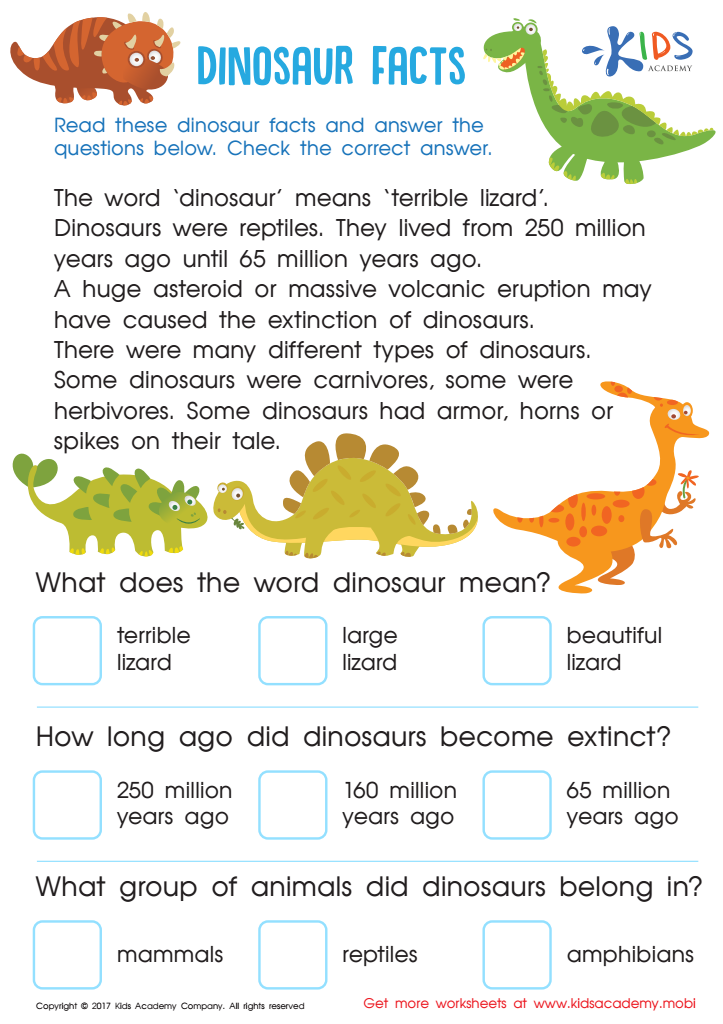

Dinosaur Facts Worksheet
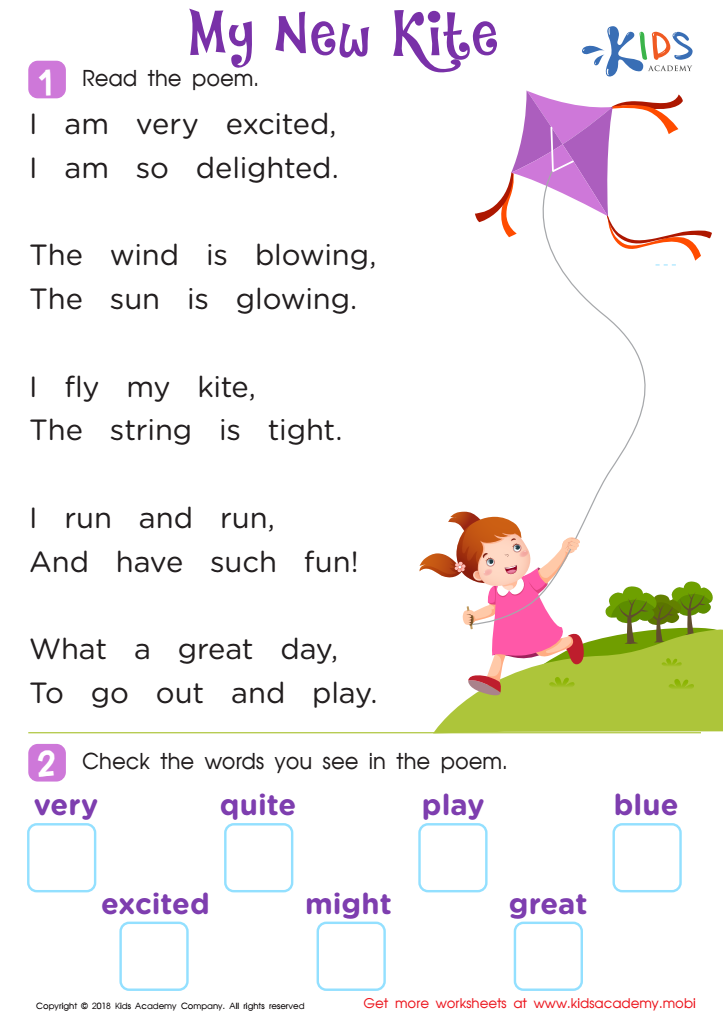

Poem: My New Kite Worksheet
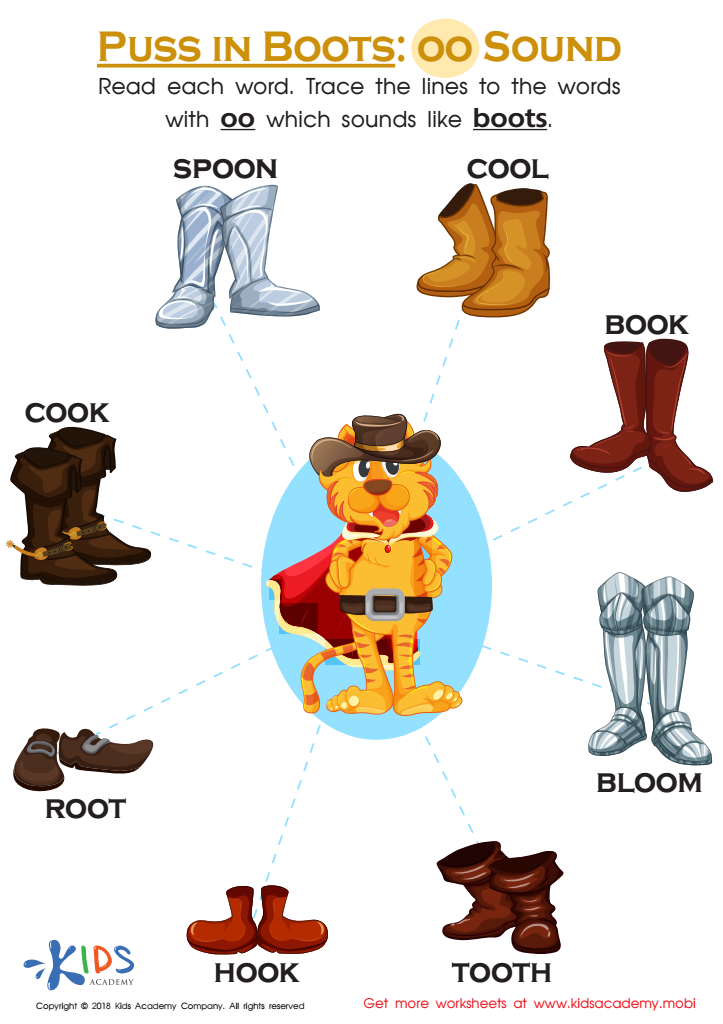

Puss in Boots: OO Sound Worksheet
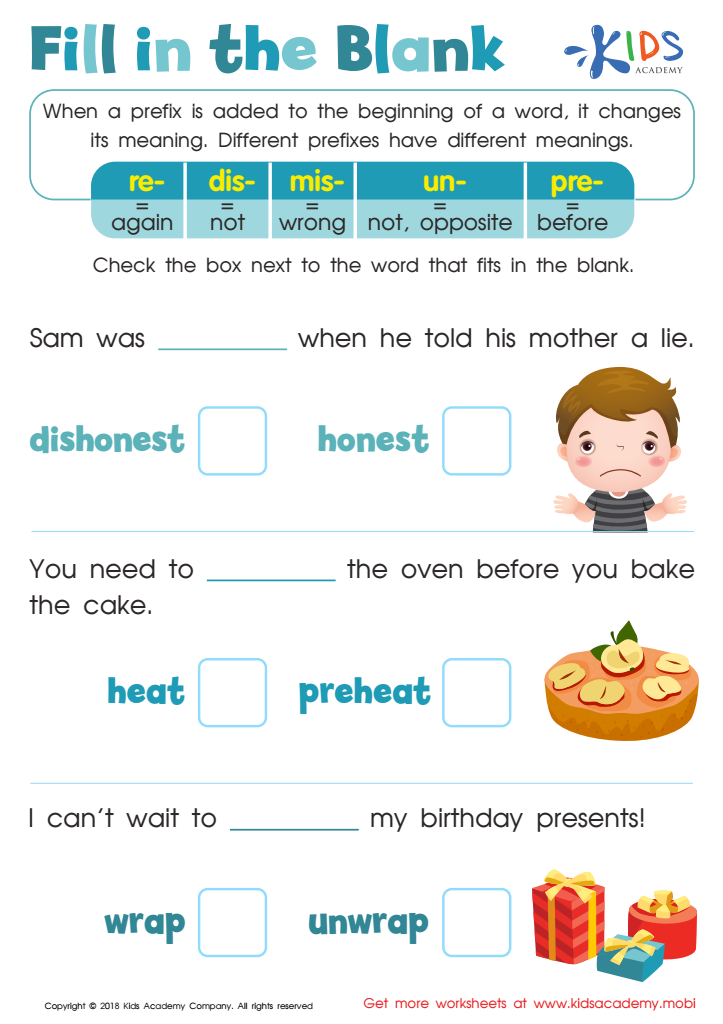

Reading: Fill in the Blank Worksheet
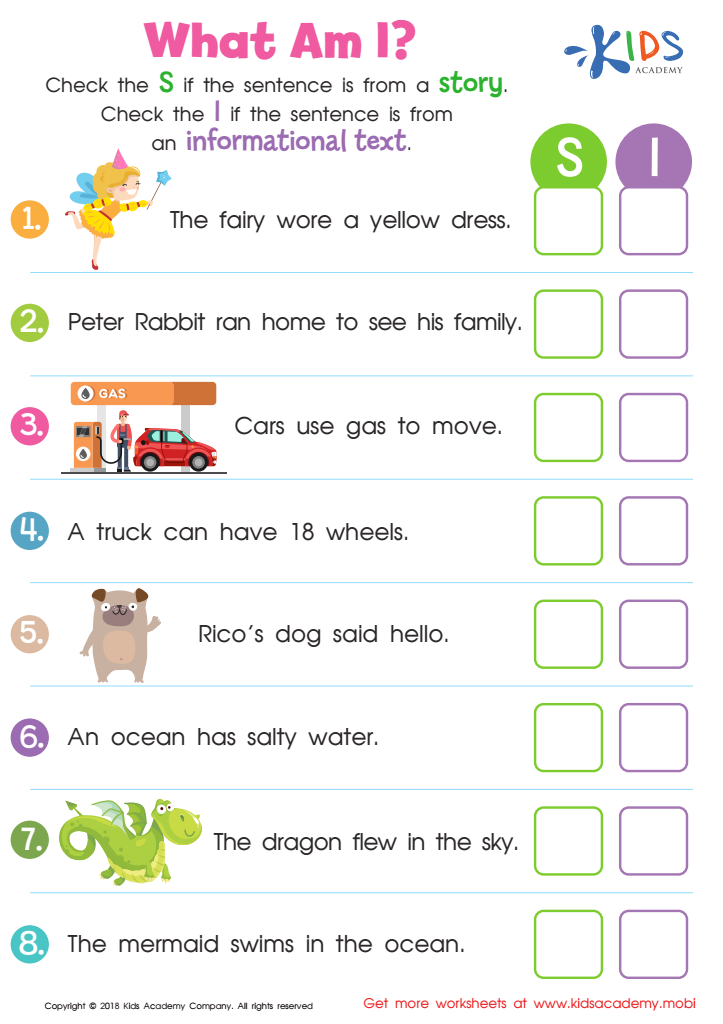

What Am I? Worksheet
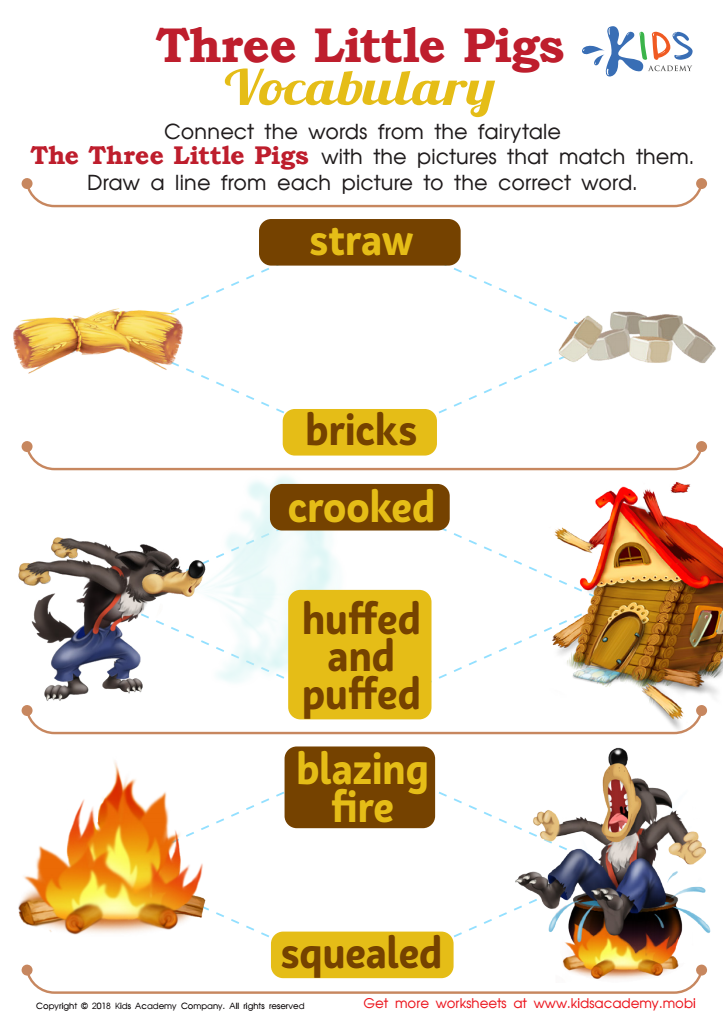

Three Little Pigs Vocabulary Worksheet
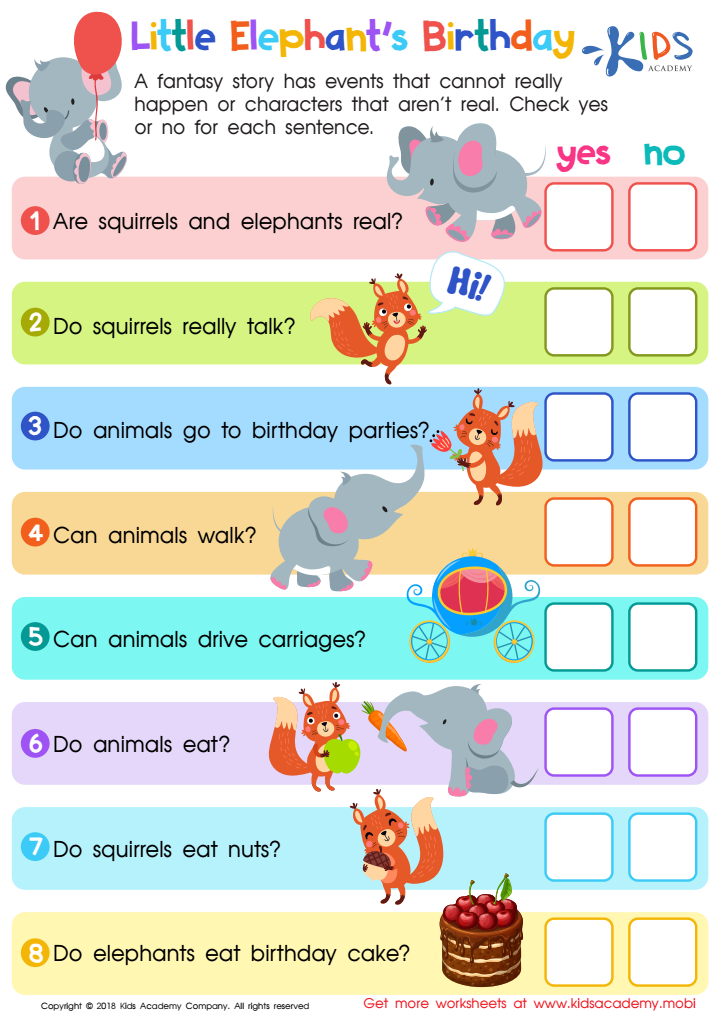

Little Elephant's Birthday Worksheet
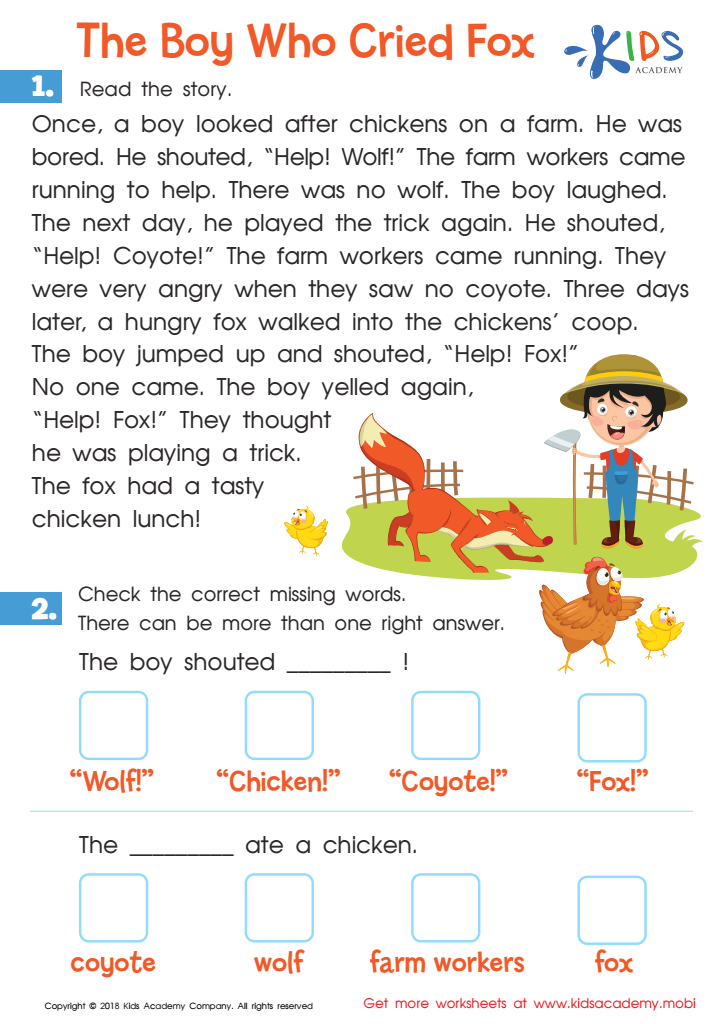

The Boy Who Cried Fox Worksheet
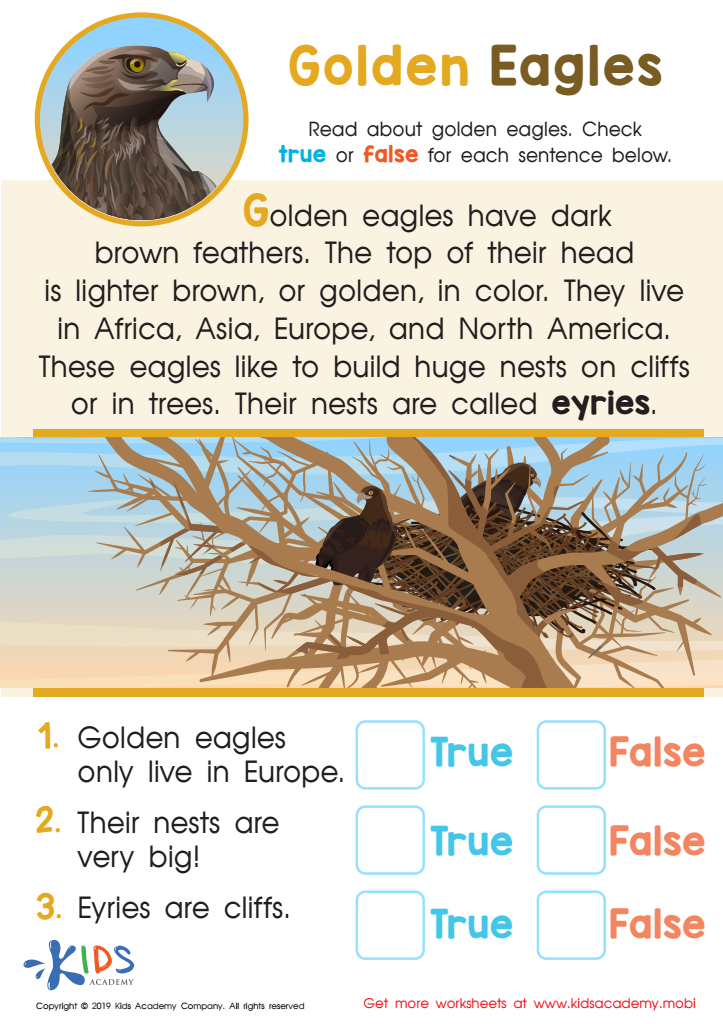

Golden Eagles Worksheet
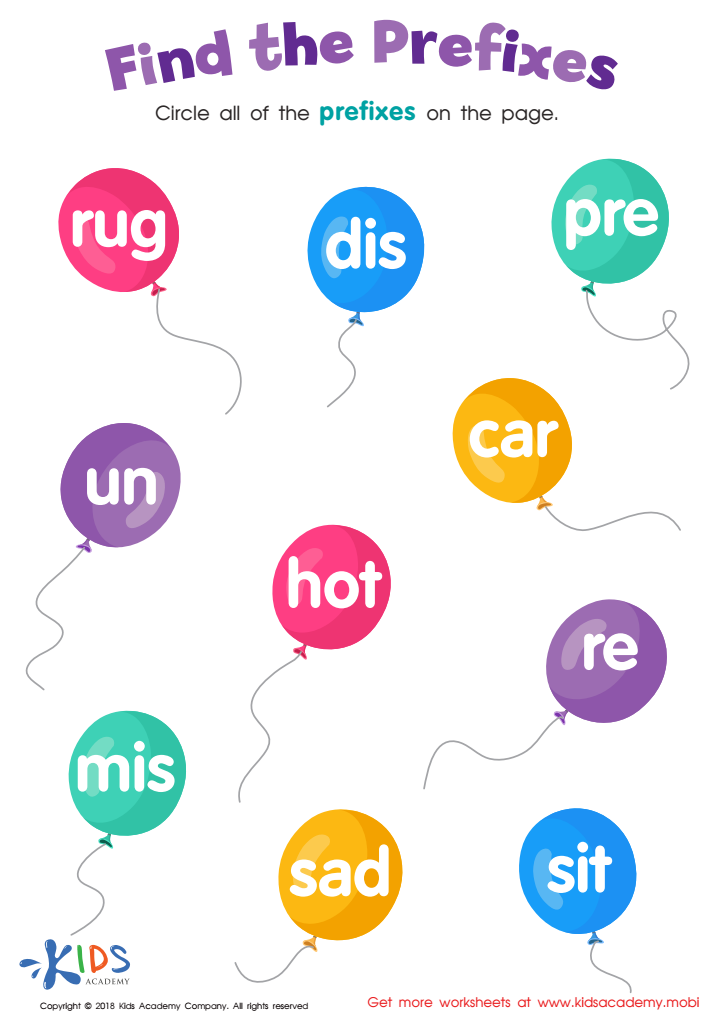

Reading: Find the Prefixes Worksheet
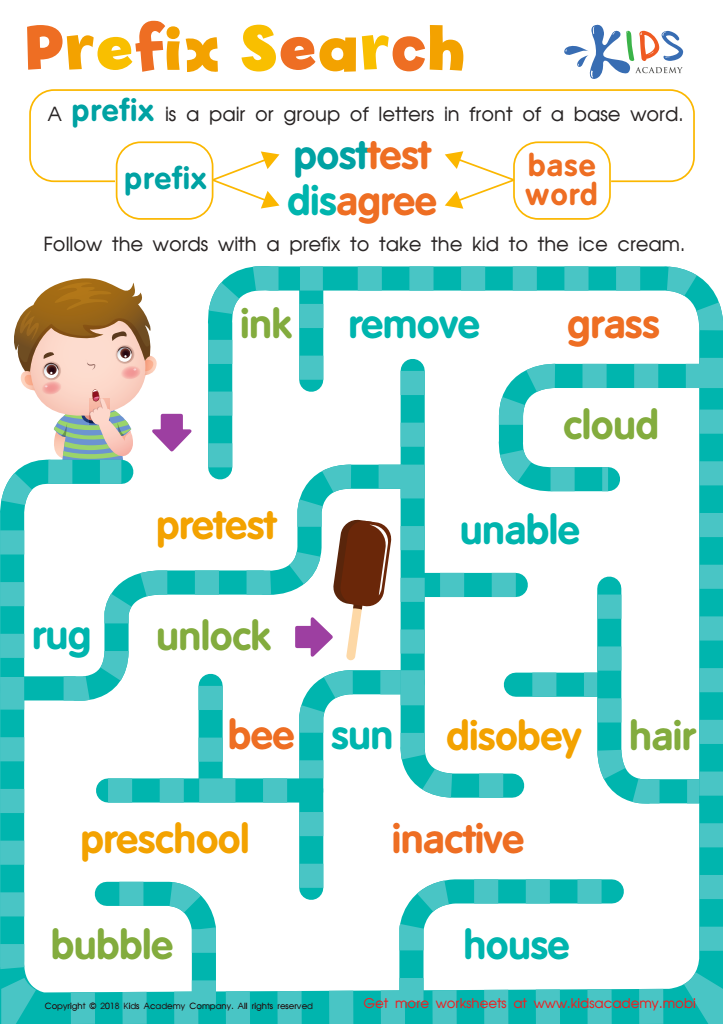

Reading: Prefix Search Worksheet
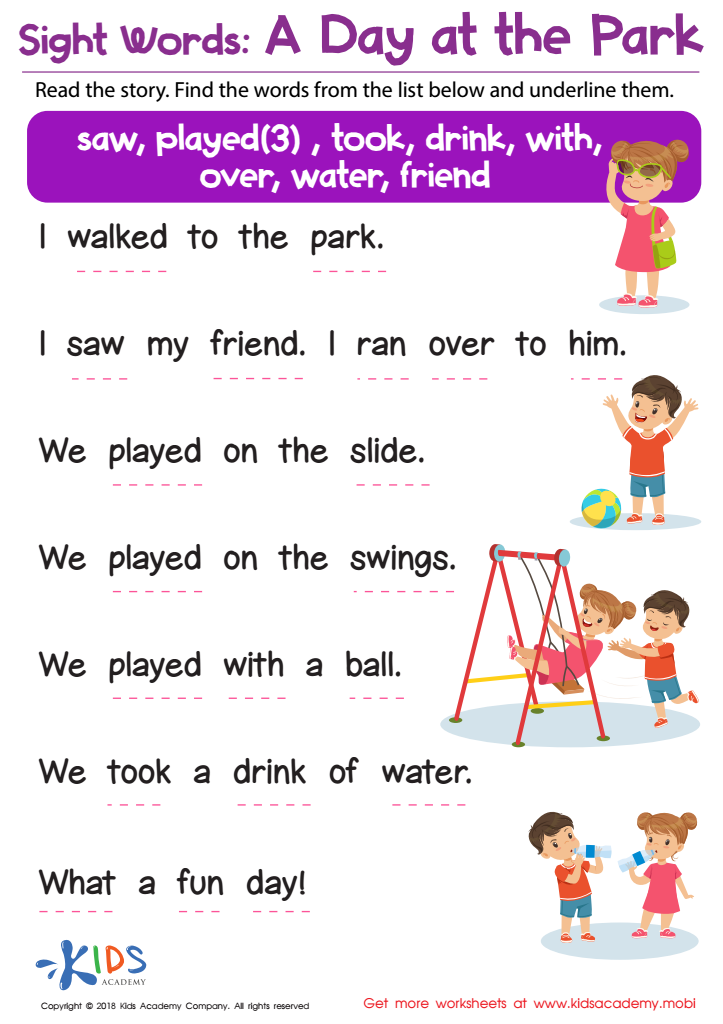

Sight Words: A Day at the Park Worksheet
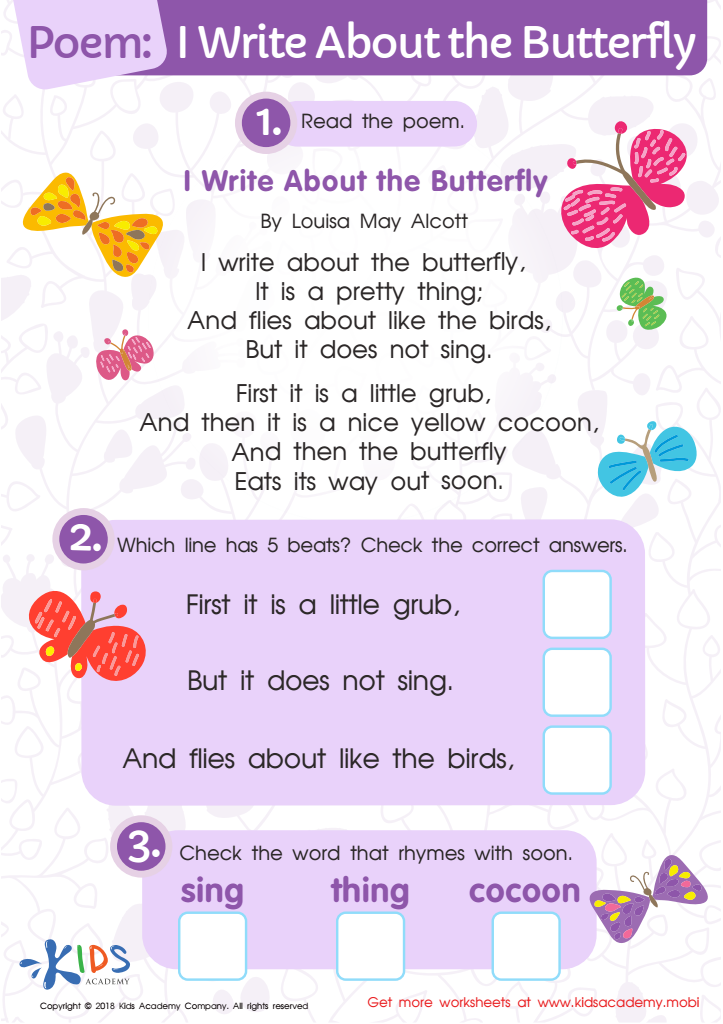

Poem: I Write About The Butterfly Worksheet
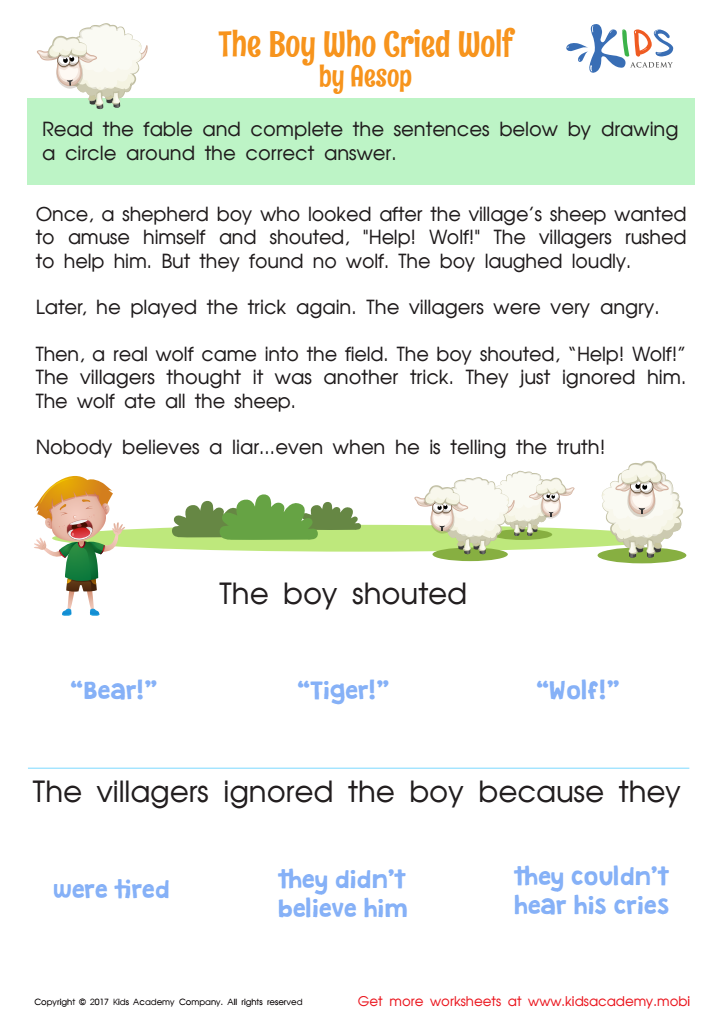

The Boy Who Cried Wolf Worksheet
Vocabulary building is crucial for children ages 4-8 as it lays the foundation for reading comprehension, which is essential for academic success. During these formative years, children develop their language skills, which significantly impact their ability to understand and interpret texts. A rich vocabulary allows children to grasp new concepts, enhance expressive language, and engage in meaningful conversations.
Parents and teachers play a pivotal role in nurturing vocabulary development. By exposing children to diverse words through reading, storytelling, and interactive conversations, they can ignite a child's curiosity and love for language. For instance, discussions about meanings, synonyms, and usage in context help deepen understanding and retention.
Moreover, strong vocabulary skills are linked to improved comprehension abilities. When children understand what they read, they can draw connections and develop critical thinking skills. This confidence boosts their willingness to participate in classroom discussions and engage with learning materials.
Furthermore, a solid vocabulary prepares children for future learning challenges and supports their emotional and social development by providing a means to express thoughts and feelings effectively. In conclusion, a concerted effort from parents and teachers in vocabulary building is essential for fostering successful readers, thinkers, and communicators.
 Assign to My Students
Assign to My Students


















